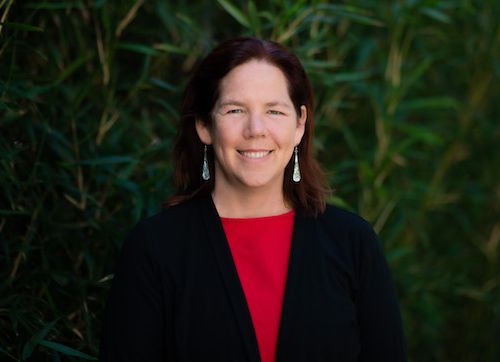Staff ‘Shape the Atmosphere and Energy’ at Universities.

Staff ‘Shape the Atmosphere and Energy’ at Universities
Universities and colleges are profoundly dependent on staff, who provide valuable, but often less visible, contributions to their institution’s daily operations, writes Maria Glymour, chair and professor of epidemiology.
Viewpoint articles are written by members of the SPH community from a wide diversity of perspectives. The views expressed are solely those of the authors and are not intended to represent the views of Boston University or the School of Public Health. We aspire to a culture where all can express views in a context of civility and respect. Our guidance on the values that guide our commitment can be found at Revisiting the Principles of Free and Inclusive Academic Speech.
When I began my graduate studies, I had a mental vision of a university as operated by faculty members. This may seem absurd but I really imagined a big tower full of professors who made everything happen by dint of their incredibly big thoughts.
This mental vision was challenged as I moved through graduate school, when the most important university personnel in my life were arguably the department receptionist (Noreen), the rotating staff members at the registrar’s desk (this was in the olden days when schools required forms signed in triplicate to add/drop/change courses—I saw those folks frequently), and the clerk at the coffee shop (Kei, who somehow poked gentle fun at my anxiety and cheered me on while selling me a 17th cup of coffee during exam week). No shade to my wonderful faculty mentors, but I saw Noreen and Kei nearly every day when I was a student and they always made me feel like I belonged. Their generous warmth and good cheer created a community and conveyed optimism that I would succeed. Compared to these lovely and inspiring interactions, the outcomes of meetings with faculty were…less predictable.
The role of “non-academic” staff in running the university became even more obvious when I started a faculty position. I realized that I didn’t know much about how the university worked! I was pretty good at running regressions, but I could barely operate the copy machine, much less figure out how to do the most essential university tasks, ranging from submitting grants to buying pizza. My skill set was shockingly narrow, and it remains so. The only way a university works is an incredible group of hyper-competent people who bend the large and inscrutable bureaucracy to their will. Universities are organizations of Byzantine complexity, with a lot of arcane knowledge about how to make things happen.
Consider the vast contributions by staff here at the School of Public Health as an example. Staff ensure that the school’s hundreds of employees are paid and connected to health insurance, and receive other resources, such as visa support. Staff also maintain our dynamic website that promotes the education, research, and practice taking place at the school and in communities across the nation and globe. They ensure that our buildings—including the one built in 1876—offer healthy and safe settings. They also provide the legal support needed to transfer data and other resources, and establish intellectual property arrangements, for research projects. And don’t even get me started on grant administrators—typically, fewer than half of the pages in a submitted research grant are written by a faculty member; staff contribute information about the budget, facilities, and contracting specifics. I could go on and on.
In short, universities are profoundly dependent on their staff, whose daily contributions largely shape the atmosphere and energy of the work environment. And yet, these folks are often overlooked. Nobody receives a Nobel Prize for processing payroll. JAMA never publishes about the modern-day miracle of collecting all of the biosketches needed for a grant application. And no matter how comprehensive the budget, it hardly ever gets featured on the website as the astonishing accomplishment it is.
Ea
I don’t think I ever adequately expressed to Noreen and Kei what a difference they made—and I’m sure I was just one of hundreds of students who benefited from their kindness. As you’re walking through the university, please take the time to look around and say thanks to the fantastic people who make it work. And remember that whatever we may accomplish that is useful and good in the university, everyone here is a part of that accomplishment.
Join me in congratulating the winners of the Think. Teach. Do. Staff Awards this year and every year. And congratulations to Shelley Barnes, senior financial administrator in the Department of Epidemiology; Susan Gomes, administrative director in the Department of Epidemiology; and Michelle Flesaker, research fellow in the Department of Epidemiology, and all of the other most recent recipients of this award, who were recognized at the September 25 school assembly.
